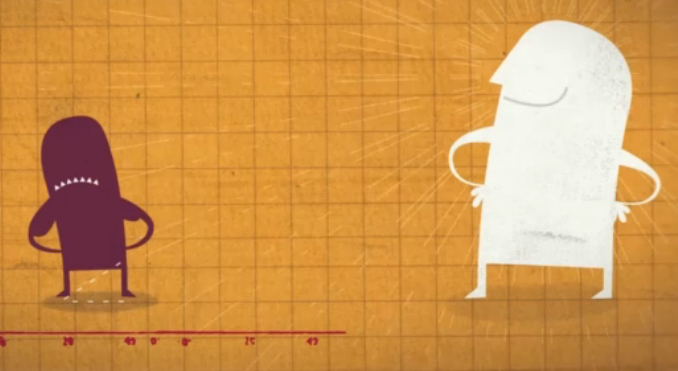So, unfortunately for our new friend from the football game, his bad behavior at the game might outweigh his good behavior at the park.
所以,很不幸对在足球赛中认识的那位新朋友来说,他在观众席上不道德的行为带来的影响会大于他在公园里的友善行为。
Research suggests that this bias occurs because immoral behaviors are more diagnostic,
研究表明,这种偏见产生的原因在于负面行为更容易识别,
or revealing, of a person's true character.
或者说让一个人的真实性格更有呈现力。
Okay, so by this logic, bad is always stronger than good when it comes to updating.
根据这种思维逻辑,在涉及到信息更新时,坏行为的影响力要大于好行为。
Well, not necessarily.
这一理论不一定完全适用。
Certain types of learning don't seem to lead to this sort of negativity bias.
某些认知方式不会导致这种负面的偏见。

When learning about another person's abilities and competencies, for instance, this bias flips.
当了解到某人的能力时,以此为例,这种偏见就跳开了。
It's actually the positive information that gets weighted more heavily.
实际上,积极信息的影响力变得更大了。
Let's go back to that football game.
让我们再谈回足球赛的事。
If a player scores a goal, it ultimately has a stronger impact on your impression of their skills than if they miss the net.
一个球员踢进球在你对他技术的印象上比他们丢了球影响力更大。
The two sides of the updating story are ultimately quite consistent.
两方面的信息更新最终相当一致。
Overall, behaviors that are perceived as being less frequent are also the ones
总的来说,在人们建立或更新印象时
that people tend to weigh more heavily when forming and updating impressions,
越是少见的行为人们越容易看得更重,
highly immoral actions and highly competent actions.
比如,非常不道德的行为和能体现能力的行为。
So, what's happening at the level of the brain when we're updating our impressions?
所以,在我们刷新印象时大脑里发生了什么呢?
Using fMRI, or functional Magnetic Resonance Imaging, researchers have identified an extended network of brain regions
利用fMRI--功能性磁共振成像,研究者发现,
that respond to new information that's inconsistent with initial impressions.
回应新信息的新扩展出的脑区网络同最初的印象并无关联。
These include areas typically associated with social cognition, attention, and cognitive control.
这些区域尤其同社会认知、注意力以及认知控制相关。


